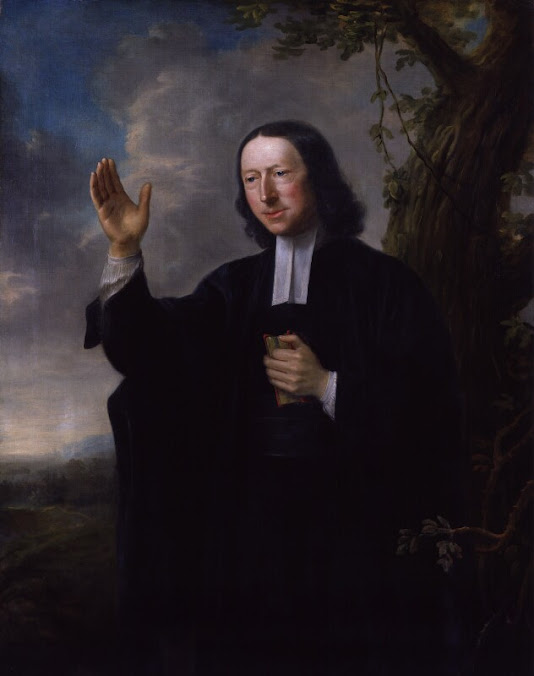JOHN WESLEY | A REVIVALIST AND AN INFLUENTIAL CLERIC
Jesus said unto her, I am the
resurrection, and the life: he that believeth in me, though he were dead, yet
shall he live. John 11:25. This
was the response Jesus Christ gave to Martha following the death of Lazarus.
Beloved in the Lord, God is ever faithful. You cannot be sold out to him and for
the interest of His Kingdom and not stand out in life. Even in death, you are
more alive. In Jesus Christ response to
Martha, our lives cannot be wiped out totally, but as long as we His covering,
our impact still lives on. There have many ambassadors of Christ who have
walked the face of the earth. These people were sold out to God and turned many
to the way of salvation. What a great joy that even after their death, their
good works still follow them. In this little piece, we will talk about a
revivalist and an astute cleric in the Body of Christ. From the 18th
century till the 21st century, the impact of John Wesley still lives
on. John Wesley was a prominent 18th-century theologian, clergyman, and founder
of the Methodist movement. He was known for his dynamic and charismatic
preaching style, which drew large crowds and had a significant impact on the
growth of Methodism.
John Wesley's
approach to religion was unique for his time, emphasizing personal piety and
holiness along with a strong commitment to social justice and activism. He
believed that faith and good works were inseparable, and that Christians had a
duty to relieve the suffering of the poor and marginalized. Wesley also placed
a strong emphasis on education and literacy, founding schools and advocating
for broad access to education. He wrote widely on a variety of topics,
including theology, hymnody, and social issues, and engaged in extensive
correspondence with his followers and peers. John Wesley's unique combination
of evangelism, social activism, and intellectual pursuits helped to shape the
Methodist movement and has left a lasting impact on Christian practice.
John
Wesley was an English theologian who founded the Methodist movement. He was
born in Epworth, Lincolnshire, England, to a family of Anglican clergy (1703-1791).
He was educated at Oxford University, where he became a member of the Holy
Club, a group of students who were devoted to prayer and study. John Wesley's
early ministry was focused on evangelism, and he travelled throughout Britain
and Ireland preaching to large crowds. He emphasized the need for personal
conversion and the importance of living a moral life. Wesley also believed that
Christianity should have a practical impact on people's lives, and he was
involved in social justice causes such as prison reform and the abolition of
slavery.
In
1739, Wesley had a spiritual experience that he described as a "heart-warming"
encounter with God. This experience deepened Wesley's faith and led him to
develop a theology that emphasized the possibility of achieving Christian
perfection. Wesley believed that Christians could attain a state of perfection,
or freedom from sin, through prayer, Bible study, and the practice of good
works. In 1739 George Whitefield, who later became an important preacher of the
Great Awakening in Great Britain and North America, persuaded Wesley to go to
the unchurched masses. Wesley gathered converts into societies for continuing
fellowship and spiritual growth, and he was asked by a London group to become
their leader. Soon other such groups were formed in London, Bristol, and
elsewhere. To avoid the scandal of unworthy members, Wesley published, in 1743,
Rules for the Methodist societies. To promote new societies, he became a widely
travelled itinerant preacher. Because most ordained clergymen did not favour
his approach, Wesley was compelled to seek the services of dedicated laymen,
who also became itinerant preachers and helped administer to the Methodist
societies.
John
Wesley died in 1791, but his influence on Christianity continues to be felt
today. The Methodist Church is one of the largest Protestant denominations in
the world, with millions of members in countries around the globe. Wesley's
emphasis on personal conversion, social justice, and the practical application
of Christian faith continues to inspire and challenge Christians of all
denominations.
Looking
at the life and impact of John Wesley, we can clearly tell his love for God and
the desire to fulfil his ministry. He didn’t just rise into greatness. He paid
the price and sacrificed many things to help spread the gospel of our Lord
Jesus Christ.
Some Quotes of John Wesley
1. 1. "Do
all the good you can, by all the means you can, in all the ways you can, in all
the places you can, at all the times you can, to all the people you can, as
long as ever you can."
2. "The
best thing of all is God is with us."
3. "Catch
on fire and people will come for miles to see you burn."
4. "Give
me 100 men who fear nothing but sin and desire nothing but God, and I care not
a straw whether they be clergymen or laymen; such alone will shake the gates of
hell and set up the kingdom of heaven on earth."
5. "The
world is my parish."
6. "In
essentials, unity; in non-essentials, liberty; in all things, charity."
7. "Though
I am always in haste, I am never in a hurry; because I never undertake more
work than I can go through with calmness of spirit."
8. "Do
not let your heart be troubled. Trust in God; trust also in me."
9. "Earn
all you can, save all you can, give all you can." 0
10. "Light
yourself on fire with passion and people will come from miles to watch you
burn."
PICTURE HIGHLIGHTS OF JOHN WESLEY
John Wesley Preaching from His Father’s Tomb
A Revivalist
Samuel
Elijah Boateng
President,
The Central Focus







I love this influential cleric.
ReplyDelete